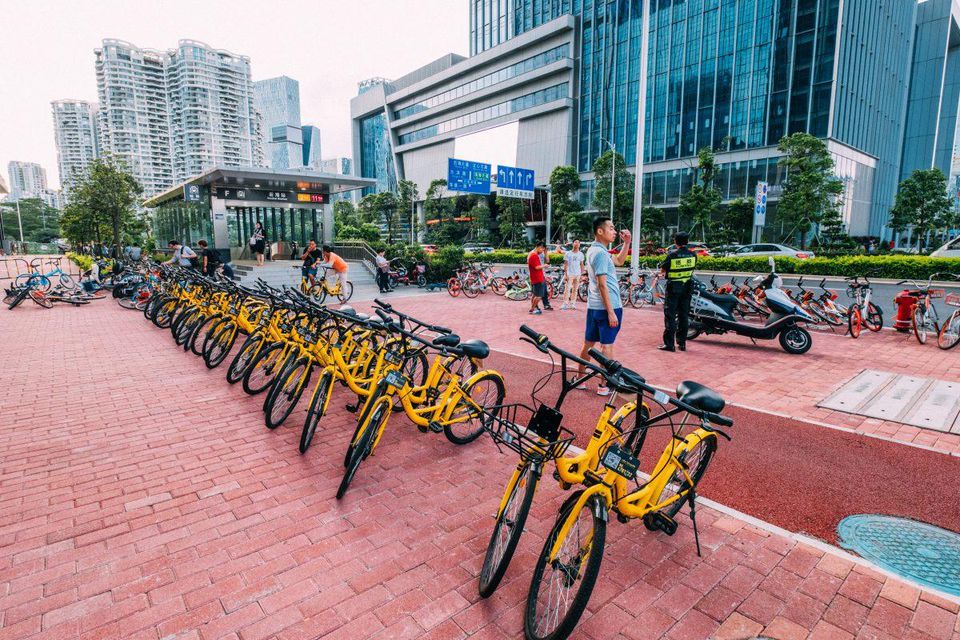Bike-sharing: Bandwagon or. . . Tragedy of the Commons?
This article is less about bike-sharing, more about the power of VC funding to start a bandwagon that implodes into a Tragedy of the Commons because of lack of planning and foresight.
In 2017 dozens of bike-share companies jumped onto the bike-share idea, rapidly flooding city streets with millions of brightly colored rental bicycles. Now this sounds like a good idea, doesn’t it?
But no coordination, and lots of competition amongst these new bike-share companies, meant that the rapid growth rapidly outpaced immediate demand and overwhelmed Chinese cities. Suddenly there were 40 bike-sharing companies in China.
Infrastructure and regulations were unprepared to handle a sudden flood of millions of shared bicycles, resulting in huge piles of broken and abandoned bicycles.

A worker rides a shared bicycle past piled-up shared bikes at a vacant lot in Xiamen, Fujian province, China December 13, 2017. REUTERS/Stringer. Photo Credit: CHINA OUT
And this, writes Forbes Magazine, grew out of what American VCs thought was a hot idea for China. The uncontrolled growth of bike-sharing was fueled by a massive injection of venture capital, creating two startup unicorns in less than two years.
Ofo, a three-year old dockless bike sharing company, raised over $1.2 billion USD. And Mobike raised more than $900 million in venture capital. The large VC funding to those two inspired other start-ups to jump onto what appeared to be a hot bandwagon.

Ofo and Mobike had problems in China, but expanded aggressively abroad, launching in Japan, Singapore, Europe and North America. In July, Ofo claimed to have 6.5 million bikes in its global network.
These two Chinese companies not only competed against each other, but also against local players.
Well-funded competitors launched in North America. LimeBike, based in San Francisco, raised $12 million from Andreessen Horowitz in early 2017. Half a year later, LimeBike closed another $50 million from Coatue Management. Meanwhile, Spin raised $8 million led by Grishin Robotics.
By mid-November 2017, Bluegogo had an empty office, and employees claimed their wages hadn’t been paid. Bluegogo was thought to be one of the most viable contenders in the space along with Mobike and Ofo, and was often quoted as the third most popular bike-sharing company in China and had between 350,000 and 700,000 bicycles, an estimated 20 million users, all of whom have paid 99 RMB ($15 USD) deposits to use the service. It collapsed. And the deposits, estimated as high as $300 million dollars, are unlikely to be repaid.
South China Morning Post reported that Mingbike, pulled out of Shanghai and Beijing earlier in 2017 to shift focus on third and fourth tier Chinese cities, then fired 99% of its staff. Coolqi, with a reported fleet of 1.4 million gold-colored bikes deployed in China, is looking for a buyer. Its 1.5 million registered users have paid a 299 RMB deposit, putting an estimated $67 million in deposits in jeopardy.
 See the excellent Forbes review of the bike-sharing craze by Evgeny Tchebotarev for more background.
See the excellent Forbes review of the bike-sharing craze by Evgeny Tchebotarev for more background.
